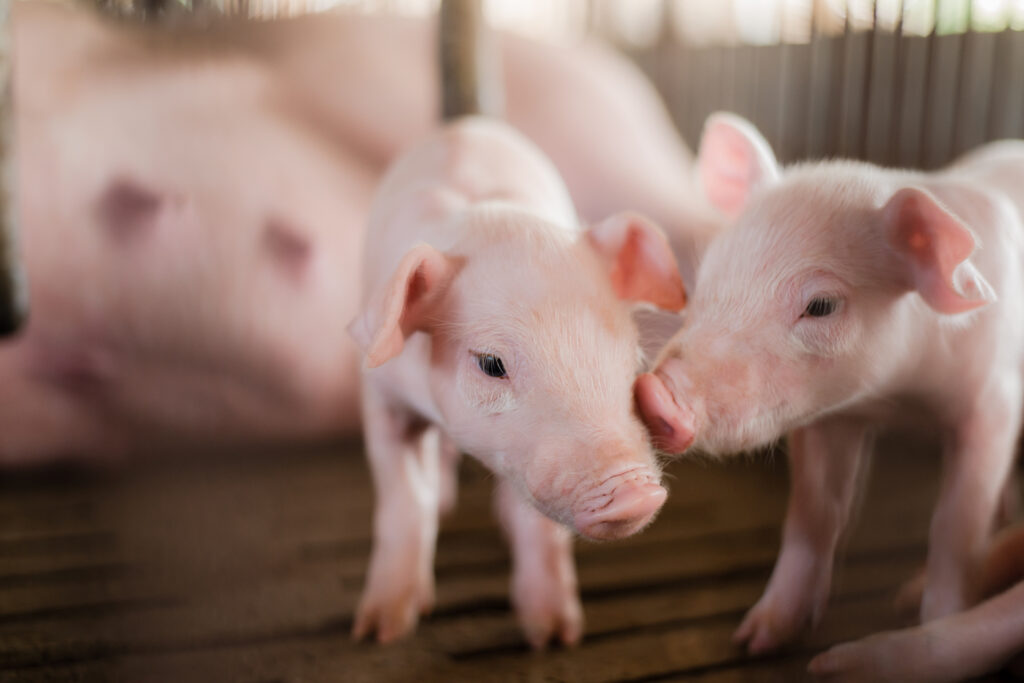Repeated needle use could lead to increased pain in piglets, study finds
3rd March 2022
New research from the Royal Veterinary College (RVC) supports recommendations that changing needles between litters (12 piglets), is crucial for protecting piglet welfare.

Repeated needle use increases the required puncture force, which could lead to increased pain experienced by piglets, the RVC study found.
More than 8.9 million pigs are reared for slaughter in the UK each year, with indoor pig production accounting for approximately 60% of the industry. The majority of indoor born piglets require an iron injection in the first few days following birth to prevent iron deficiency, which can reduce growth rates and increase disease susceptibility and mortality.
The reuse of needles between animals is common, but without regular needle changes the force needed to administer the injection increases and may cause pain and distress for the piglet.
In conducting this study, the research team, led by undergraduate veterinary student, Kathryn Owen, and supported by Dr Nicola Blackie, senior lecturer in production animal science; and Dr Troy Gibson, associate professor in animal welfare science, examined the force required to puncture the skin of a piglet cadaver for the first time, 12th time, 36th time and 100th time, mimicking reuse of needles.
The RVC researchers then also viewed the needles under scanning electron microscopy to assess the damage caused to needles over repeat usage. They found that the puncture forces increased after 36 uses and the electron microscopy imaging showed visible damage to the needle tip after only 12 uses.
As part of the research, the team also sent a survey to a sample of UK pig farmers asking about their iron injection practices. From the 31 respondents, 81% of farms reported needle reuse. Of these, only 39% changed the needle between litters or earlier if damaged, and 23% changed the needle when it felt blunt or damaged, after each injection session or when changing the bottle of iron solution.
The research provides essential data to support the recommendation that needles should be changed between litters of piglets or more often.
